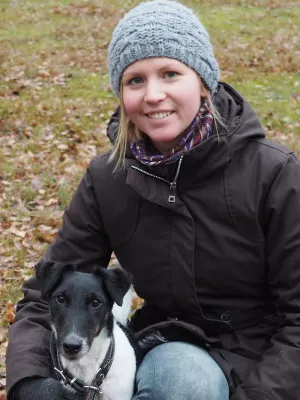
Ellinor Isgren
Researcher

‘If the change is going to happen it's not by us' : Exploring the role of NGOs in the politicization of Ugandan agriculture
Author
Summary, in English
Sustainable agricultural development that prioritizes the needs and respects the rights of smallholder farmers is widely framed as a societal goal by both national governments and international institutions. However, in many places this remains an elusive goal, not least in sub-Saharan Africa. The past decades have seen new types of rural social movements emerge, demanding socially just and environmentally sustainable trajectories of agrarian change. But there are also places where this is seemingly not the case, Uganda being one. Based on qualitative research involving civil society organizations at the national and regional level, this paper analyzes contemporary civil society dynamics around agriculture in Uganda against a historical backdrop. Social division and civil society NGOization have contributed to unfavorable conditions for rural social movement emergence, but not irreversibly. Systematic policy advocacy engagement appears to be on the rise amongst agriculture-oriented NGOs, and while it is generally non-confrontational, contentious claims-making does happen. NGOs also aspire to facilitate farmer-led mobilization, although their logics of intervention differ and would benefit from more dialogue and theoretical grounding. For moving forward in NGOized contexts like Uganda, three points are emphasized: NGO-led and farmer-led mobilization is not a simple dichotomy; their relationship need not be antagonistic and there are several possible ways to seek synergies; and fostering capacity for farmers' contentious claims-making must involve counterhegemonic struggle. The paper ends by suggesting three areas for agri-food scholars interested in the complex interactions between NGOs and rural social movements.
Department/s
- LUCSUS (Lund University Centre for Sustainability Studies)
Publishing year
2018
Language
English
Pages
180-189
Publication/Series
Journal of Rural Studies
Volume
63
Document type
Journal article
Publisher
Elsevier
Topic
- Social Sciences Interdisciplinary
Status
Published
Research group
- LUCID - Lund University Centre of Excellence for Integration of Social and Natural Dimensions of Sustainability
ISBN/ISSN/Other
- ISSN: 0743-0167